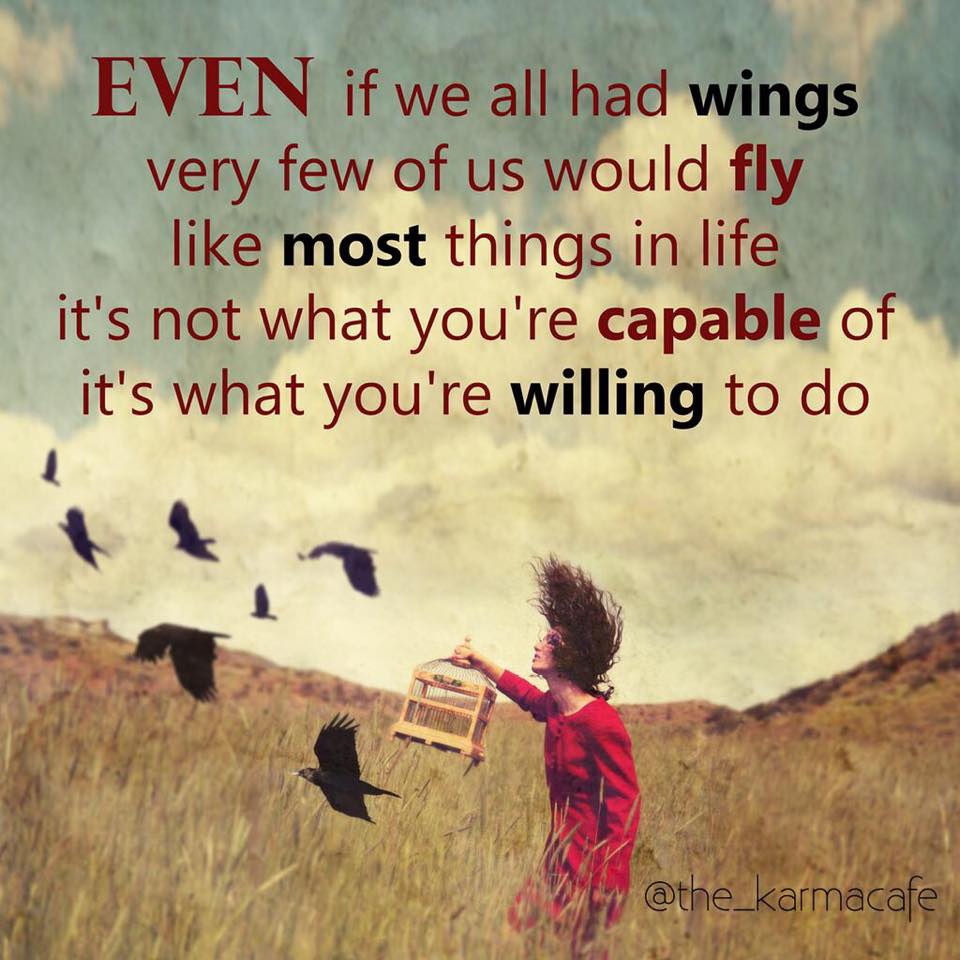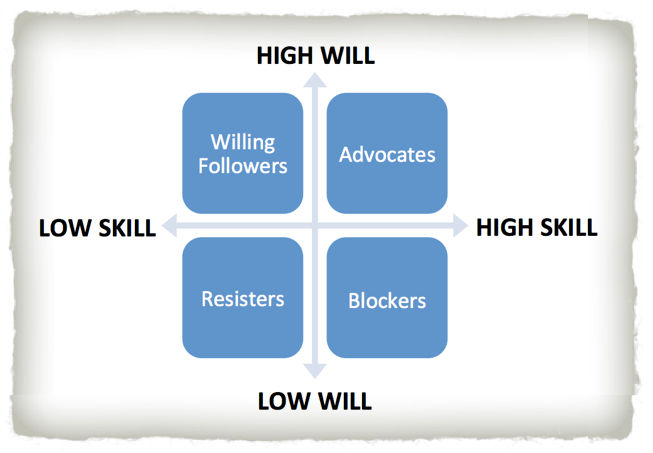I couldn't agree more.
Many years ago in a leadership training course put on by Shell I was introduced to a simple model.
You read a lot today about capability. I am a capable person who can "blah blah blah". Every resume and LinkedIn profile reads the same way. "I can...and have X degree and Y certification"
Plenty of us are capable beings. The question is are we willing?
It's the classic case of the Harvard kid who can make the grade, read the homework, and solve the complicated academic problem, but when put in the real world, can he or she adapt and perform in a different setting with new variables?
Does he or she want to?
The best kind of people fall into two categories.
1. High skill and high will. When you have a highly skilled person who is engaged, that's rare. With 70% of the workforce disengaged, you're definitely working against the norm. You want advocates in your corner, so keep them motivated. If this is your boss, consider yourself very lucky. Very.
2. Low skill and high will. Willing followers are the next best thing to advocates. People who crave to learn that don't have the skill to do the job are convertible resources. The problem is today's organizations don't know how to manage these opportunities. (It's why talent development will continue to cost billions and I will have ongoing rants on the matter.) For years companies have relied heavily on sheer competence and rarely looked at behavior and culture. That's changing. If you have someone who wants to learn new things and is willing to put the effort in, hang on to that resource! It will take more time to motivate a resister or blocker to perform than a willing follower.
A year ago I wrote a post called Now Hiring: The Relevant Hustler. I stand by what I said then. It hasn't changed.




